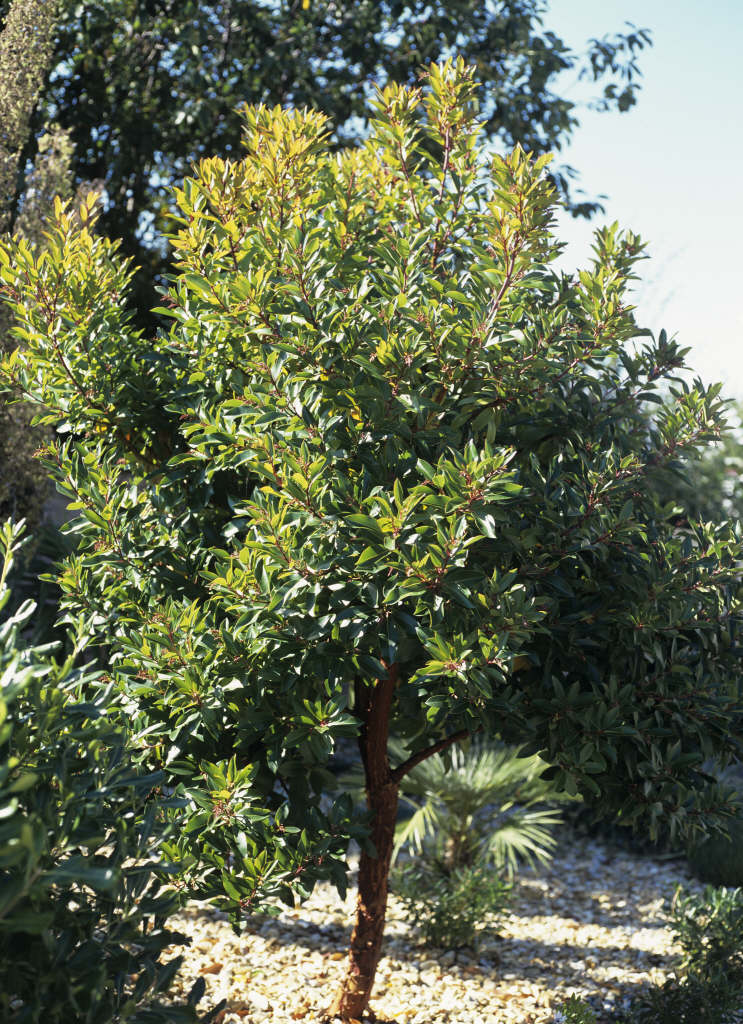Arbutus × andrachnoides
hybrid strawberry tree
A bushy, evergreen, shrubby tree with attractive peeling cinnamon-brown bark and glossy mid green leaves, whitish beneath. Small white urn-shaped flowers sometimes tinged pink are produced in panicles from autumn to spring. Small orange-red autumn fruits are rarely produced. Whilst the fruits are edible and used to make jams and liqueurs in some countries, they are generally grown for ornamental purposes only in the UK
Size
Ultimate height
4–8 metresTime to ultimate height
10–20 yearsUltimate spread
4–8 metresGrowing conditions
Moisture
Well–drainedpH
Acid, Neutral, AlkalineColour & scent
| Stem | Flower | Foliage | Fruit | |
| Spring | Red Brown | White | Green | |
|---|---|---|---|---|
| Summer | Red Brown | Green | ||
| Autumn | Red Brown | White | Green | Orange Red |
| Winter | Red Brown | White | Green |
Position
- Full sun
Aspect
South–facing or West–facing
Exposure
Sheltered Hardiness
H4Botanical details
- Family
- Ericaceae
- Native to GB / Ireland
- No
- Foliage
- Evergreen
- Habit
- Bushy, Spreading branched
- Potentially harmful
- Fruit are ornamental - not to be eaten. Wear gloves and other protective equipment when handling Pets: Fruit are ornamental - not to be eaten - see the HTA guide to potentially harmful plants for further information and useful contact numbers
- Genus
Arbutus are evergreen trees and shrubs with small, bell-shaped creamy-white or pink flowers, and red, strawberry-like fruits in autumn
- Name status
Correct
- Plant range
- Turkey, Cyprus
How to grow
Cultivation
Grow in humus-rich, well-drained soil in full sun with shelter from cold winds
Propagation
Propagate by semi-ripe cuttings in late summer
Suggested planting locations and garden types
- Coastal
- Cottage and informal garden
- Mediterranean climate plants
- Low Maintenance
Pruning
Pruning group 1 but pruning should be kept to a minimum
Pests
May be susceptible to aphids
Diseases
May be susceptible to arbutus leaf spot and honey fungus
Get involved
The Royal Horticultural Society is the UK’s leading gardening charity. We aim to enrich everyone’s life through plants, and make the UK a greener and more beautiful place.
